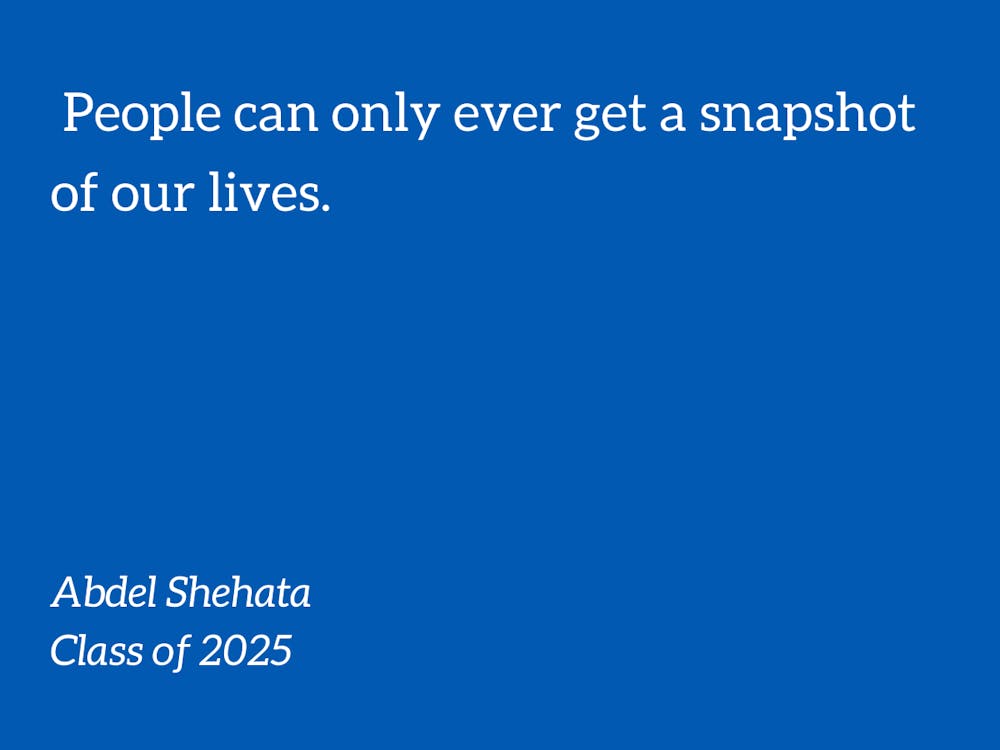How many words are you willing to read? 500? 700? Maybe 1000 when the topic aligns with your interests. For some of you, you might click on this article but quickly get distracted by your phone notifications or your funny roommate. Nonetheless, this possibility of losing the reader is what writers fear the most: having no readers is interchangeable with shouting into an empty void. Nevertheless, this possibility creates one of the most important characteristics of writing: space.
When you receive any writing assignments, what's the first thing you look at? Of course, the word limit. While you might think the word limit exists to prevent your favorite professors from overworking themselves (or to prevent the poor underpaid TAs from questioning their life decisions), it also serves as training for your use of space. The concept of space is easy to understand. First, we know that we have a limited attention span (look at TikTok as exhibit 1). Second, we also know that there are a million things competing for our attention. Thus to compete for the prime real estate of our attention, writers and creators need to evaluate the amount of space they have, and how to employ it effectively.
To employ space effectively, content creators first have to understand how much time their target audience is willing to invest in their topic. For example, a journalist covering the coup in Burkina Faso knows that the average American is willing to read a max of 300 words about the coup. Thus, in 500 words, the journalist has the tall order of summarizing the important facts about Burkina Faso, and explaining the events of a complicated coup. Now, change the audience to experts or the topic to Russia, and that same journalist might now have a space of 2000 words. Understanding this is important for journalists, since if they made their article too long then their audience would close the tab, but if they made it too short then they might not be developing the required information, which can make the audience feel cheated.
Space is not only relevant to writers and content creators, but also to us normal Joes and Janes. In fact, one chapter of life is decided by a trial that tests our use of space: college applications. During college applications, we are asked to summarize 18 years of our life (or 9,460,800 minutes!) in 700-1000 words, in a space smaller than the Sparknotes summary of most novels. Through that process, we discard many important events and aspects of our life to cater to our audience. Successful or not, this process teaches us two important and painful lessons: most of our experiences and beliefs don’t matter to most people, and that people can only ever get a snapshot of our lives.
A snapshot–one that both affirms and denies our worries, affirming our rejections through the possibility that we presented the wrong image of ourselves. On the other hand, it cements the thought that we are truly alone in this world, with people only seeing snapshots of us, not the full film. This thought becomes the foundation upon which overthinking can build. Overthinking what snapshot we should present to fit in and make an impression. Overthinking how much we should have presented ourselves to this person. Overthinking through comparing a person’s snapshot to ours.
Through this overthinking, we tend to mismanage our space, through both our written word and our speech. The best example of mismanagement of space through the written word are resumes. As anyone career advisor would tell you, writing a resume is an art. The first step of writing any resume, and the one that people tend to get wrong, is choosing what to put on it. You put too much stuff on it, and the important stuff gets lost in an ocean of words. Put too little stuff on your resume and it looks barren like the desert. So, don’t compare your resume to other people and add fodder to it, when it's already perfectly okay. An example of our tendency to mismanage space through our speech are dates. Speak too much about yourself on a date, and you seem like a self centered prick. Speak too little about yourself, and you might end up looking like you are hiding something or uninterested. Thus, striking up a delicate balance of the use of space on yourself is a must.
Thus, be it on your next essay or date, be mindful of how much space you have to get the snapshot of yourself. But don’t fret if you don’t get it right this time, since new snapshots of you are always being discovered.
Abdel Shehata is a Trinity freshman. His column runs on alternate Thursdays.
Get The Chronicle straight to your inbox
Signup for our weekly newsletter. Cancel at any time.

